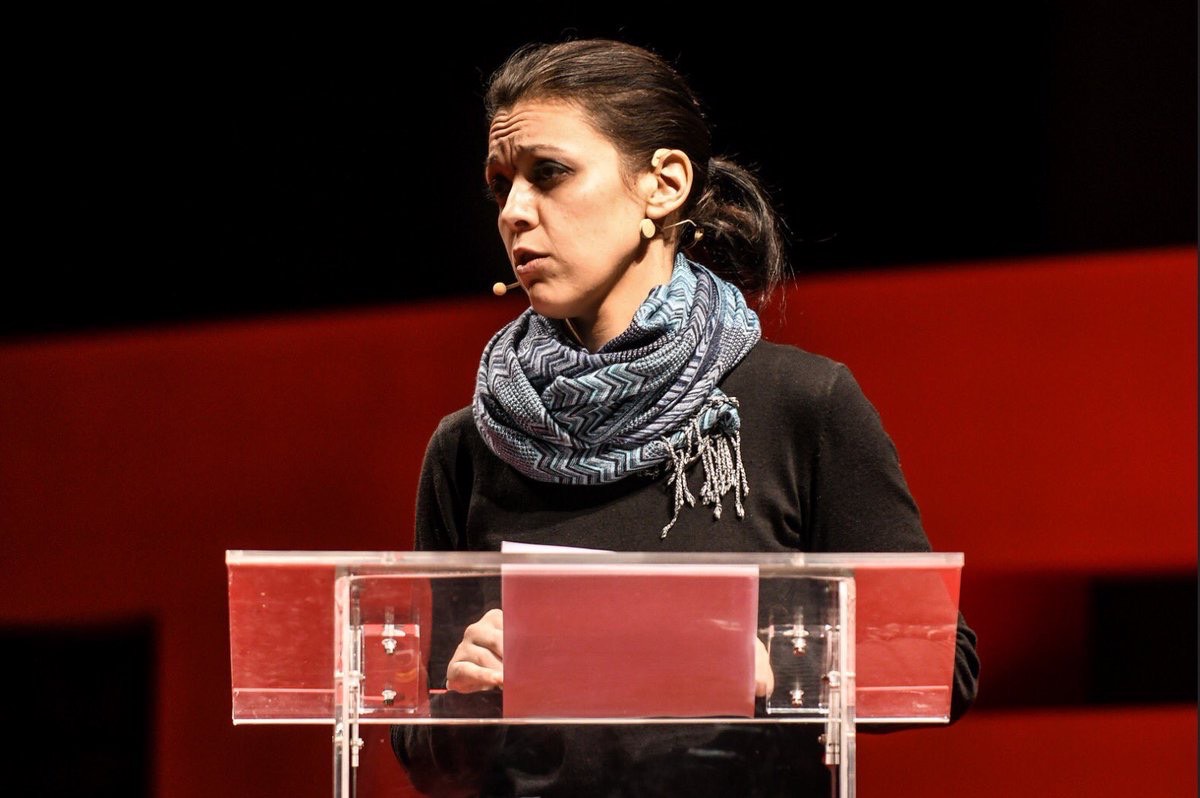Francesca Borri
Francesca Borri was selected for the 2019 European Press Prize shortlist with ‘Gaza. It’s time for change‘
A pupil of late jurist Antonio Cassese, she holds a MA in International Relations, a MA in Human Rights, and a BA in Philosophy of Law.
After a short experience in the Balkans, in 2007 Francesca Borri moves to Ramallah, Palestine, where she works as human rights specialist for Mustafa Barghouti. In 2012, after Antonio Cassese’s death from leukemia, she turns to journalism with an investigative report for Il Fatto Quotidiano on Europe’s largest, and most polluting, steelworks, the Ilva plant of Taranto – widely blamed for a spike in cancer rates. Known only locally, the story eventually hits the headlines, helping get the issue on the public agenda.
Back to the Middle East, Francesca Borri starts covering the battle for Aleppo. Paid 80 euro per piece, in 2013 she writes for the Columbia Journalism Review a first-person account of the exploitation of freelancers. It goes viral worldwide, but Francesca Borri is fiercely criticized by Italian media as a spoiled child who has yet to get used to the harshness of war.
Joined in Syria by US photographer Stanley Greene, she writes for the Guardian about the rise of a new rebel group: the Islamic State. In 2014 she is shortlisted for the Prix Bayeux-Calvados with a reportage for Le Monde.
In 2016 Francesca Borri publishes Syrian Dust. In 2016 she is the speaker of the Annual Address of the Peace Institute of Oslo.
Still focused on Syria, Francesca Borri starts working throughout the Middle East, and in April 2016, Il Fatto Quotidiano runs her three-page investigative report on the murder of PhD student Giulio Regeni, tortured to death in Cairo. Her findings expose the collusion of Egyptian authorities, providing new insights to Italian prosecutors.
In 2017 Francesca Borri is shortlisted for the European Press Prize with a report from the Maldives, the non-Arab country with the highest per capita number of foreign fighters. It will later become a book, Destination Paradise, published in 2018.
In 2018 she meets Hamas new leader Yahya Sinwar, who had never spoken before to Western media. The interview is run front page also by Yedioth Ahronoth, Israel’s largest newspaper, and paves the way to a de facto ceasefire.
Her latest book, Exodus, published in 2019 with Pulitzer-winning photographer Sergey Ponomarev, is about refugees. So far, her dispatches from war zones have been translated into 24 languages.


